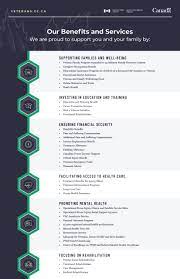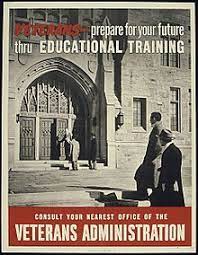VA Education: Unlocking Opportunities for Veterans
Education plays a crucial role in shaping our lives and opening doors to new opportunities. For veterans, the pursuit of education is not only a means to acquire knowledge but also a pathway to personal growth, career advancement, and successful reintegration into civilian life. The U.S. Department of Veterans Affairs (VA) recognizes the importance of education for veterans and offers a range of programs and benefits to support their educational goals.
One of the most well-known VA education programs is the Post-9/11 GI Bill. This bill provides financial assistance to eligible veterans who served on or after September 11, 2001. Under this program, veterans can receive funding for tuition and fees, a monthly housing allowance, and a stipend for books and supplies. This comprehensive support enables veterans to pursue their desired degree or vocational training without the burden of financial constraints.
The VA also offers other education programs such as the Montgomery GI Bill, which provides benefits for veterans who served before September 11, 2001, as well as the Survivors’ and Dependents’ Educational Assistance Program (DEA), which assists spouses and children of disabled or deceased veterans. These programs ensure that education benefits extend beyond just the veteran themselves, recognizing the importance of supporting their families too.
In addition to financial assistance, the VA provides valuable resources to help veterans navigate their educational journey. The VA’s website offers an array of information on choosing an educational institution, understanding different types of degrees or certifications, and exploring career options after graduation. Veterans can also access counseling services through VetSuccess on Campus (VSOC) programs that are available at many colleges and universities across the country.
Furthermore, many educational institutions have established veteran-friendly initiatives to create a supportive environment for those who have served. These initiatives may include dedicated veteran resource centers staffed with knowledgeable personnel who understand the unique needs and challenges faced by veteran students. Such centers often provide academic advising, career counseling, and peer support networks, fostering a sense of community among veteran students.
The benefits of pursuing education as a veteran extend far beyond the classroom. By obtaining higher education or specialized training, veterans can enhance their skill sets and increase their marketability in the civilian job market. Education equips veterans with the tools they need to transition into meaningful careers that align with their interests and aspirations.
Moreover, education can serve as a platform for personal growth and self-discovery. It offers an opportunity for veterans to explore new fields of study, develop critical thinking skills, and expand their horizons. The educational journey allows veterans to build confidence in their abilities and empowers them to become lifelong learners.
The VA’s commitment to supporting veterans’ education is a testament to the nation’s gratitude for their service. Through financial assistance, resources, and specialized programs, the VA strives to ensure that veterans have every opportunity to achieve their educational goals and thrive in their post-military lives.
If you are a veteran considering furthering your education or exploring vocational training options, take advantage of the resources available through the VA. Reach out to your local VA office or visit their website to learn more about the various programs and benefits you may be eligible for. Education is not just a means to an end; it is an investment in your future success and fulfillment.
Frequently Asked Questions About VA Education Benefits: A Comprehensive Guide
- What types of VA education benefits are available?
- How do I apply for VA education benefits?
- What is the GI Bill and what does it cover?
- How long do VA education benefits last?
- Are there any restrictions on how I can use my VA education benefits?
- What documents do I need to provide in order to receive VA education benefits?
What types of VA education benefits are available?
The U.S. Department of Veterans Affairs (VA) offers a variety of education benefits to support veterans, active duty military personnel, and their families. These benefits aim to assist individuals in pursuing higher education or vocational training. Here are some of the key VA education benefits available:
- Post-9/11 GI Bill: This program provides financial assistance for veterans who served on or after September 11, 2001. It covers tuition and fees, a monthly housing allowance based on the location of the educational institution, and an annual stipend for books and supplies.
- Montgomery GI Bill: The Montgomery GI Bill is available to veterans who served before September 11, 2001. It offers financial assistance for approved degree programs, vocational training, apprenticeships, and other eligible educational pursuits.
- Survivors’ and Dependents’ Educational Assistance Program (DEA): DEA provides educational benefits to spouses and children of veterans who are permanently disabled or deceased due to their military service.
- Vocational Rehabilitation and Employment (VR&E): This program assists veterans with service-connected disabilities in obtaining suitable employment through vocational rehabilitation services such as counseling, training programs, educational support, and job placement assistance.
- Tuition Assistance: Active duty service members may be eligible for tuition assistance programs offered by their respective military branches. These programs provide financial support for pursuing higher education while on active duty.
- Yellow Ribbon Program: Under the Post-9/11 GI Bill, the Yellow Ribbon Program helps cover additional tuition expenses for eligible veterans attending private colleges or universities that have partnered with the VA.
- VetSuccess on Campus (VSOC): VSOC offers counseling services and resources to help veterans succeed in their educational pursuits while transitioning from military life to college campuses across the country.
It’s important to note that eligibility requirements may vary depending on each program. Veterans should consult with their local VA office or visit the official VA website to determine their eligibility and learn more about the specific benefits available to them.
The VA education benefits are designed to provide financial support, guidance, and resources to veterans and their families, ensuring they have the opportunity to pursue their educational goals and achieve success in civilian life.
How do I apply for VA education benefits?
Applying for VA education benefits is a straightforward process. Here are the steps to follow:
- Determine your eligibility: Before applying, ensure that you meet the eligibility criteria for VA education benefits. Eligibility requirements may vary depending on the specific program you are applying for, such as the Post-9/11 GI Bill or the Montgomery GI Bill. Visit the official VA website or contact your local VA office to understand the eligibility criteria for your desired program.
- Gather necessary documents: Collect all relevant documents required for your application. This may include your Certificate of Release or Discharge from Active Duty (DD Form 214), transcripts from previous education institutions, and any other supporting documentation requested by the VA.
- Choose an educational program: Decide on the educational program you wish to pursue, whether it’s a degree program at a college or university, vocational training, apprenticeship, or on-the-job training. Research and select an institution that is approved by the VA to participate in their education programs.
- Complete and submit an application: To apply for VA education benefits, complete the appropriate application form online through the Veterans Online Application (VONAPP) website or its successor platform called Veterans Benefits Management System (VBMS). The form will require you to provide personal information, details about your military service, and your chosen educational program.
- Await processing and notification: Once you have submitted your application, it will be processed by the VA. The processing time may vary depending on several factors such as workload and complexity of your case. During this period, regularly check your mail and email for updates from the VA regarding your application status.
- Receive Certificate of Eligibility (COE): If approved, you will receive a Certificate of Eligibility (COE) from the VA via mail or electronically. The COE outlines the specific benefits you are eligible for and provides important information that you will need when enrolling in your chosen educational program.
- Notify your educational institution: Once you have received your COE, inform your chosen educational institution’s Veterans Affairs office or designated point of contact about your VA education benefits. They will guide you through the process of certifying your enrollment and ensuring that your tuition and fees are properly covered.
- Attend classes and report changes: Begin attending classes and make sure to report any changes in your enrollment status, such as adding or dropping courses, to the VA and your educational institution’s VA office. This helps ensure accurate benefit payments and avoids any potential overpayments or underpayments.
Remember, each VA education benefits program may have specific requirements and procedures, so it is essential to thoroughly review the information provided by the VA and seek guidance from their representatives if needed.
What is the GI Bill and what does it cover?
The GI Bill is a comprehensive education benefit program offered by the U.S. Department of Veterans Affairs (VA) to eligible veterans and their dependents. It was initially established in 1944 as the Servicemen’s Readjustment Act, commonly known as the GI Bill of Rights, to provide support to veterans returning from World War II.
The GI Bill has undergone several iterations over the years, with the most recent version being the Post-9/11 GI Bill. This bill provides financial assistance to veterans who served on or after September 11, 20
- The benefits offered under the Post-9/11 GI Bill include:
- Tuition and Fees: The VA covers a portion or all of a veteran’s tuition and fees, depending on their length of active-duty service. The amount covered is based on the highest in-state public school tuition rate, and it can be used towards undergraduate or graduate programs, vocational training, and even certain licensing and certification exams.
- Monthly Housing Allowance (MHA): Eligible veterans receive a monthly housing allowance based on the location of their educational institution and whether they are attending full-time or part-time. The MHA helps cover housing expenses while pursuing education.
- Books and Supplies Stipend: Veterans can receive up to $1,000 per academic year for books and supplies necessary for their education.
- Yellow Ribbon Program: Under this program, participating institutions can enter into an agreement with the VA to fund tuition expenses that exceed the maximum amount covered by the Post-9/11 GI Bill. This program is particularly beneficial for veterans attending private institutions or out-of-state schools.
- Transferability Option: In certain cases, veterans may be able to transfer unused education benefits to their spouse or dependent children.
It’s important to note that eligibility criteria vary depending on factors such as length of service, discharge status, and other specific requirements set by the VA. Veterans are encouraged to check with the VA or their local VA office to determine their eligibility and explore the benefits they may be entitled to under the GI Bill.
The GI Bill has been instrumental in helping countless veterans pursue higher education, vocational training, and career advancement. It serves as a vital resource in supporting veterans’ transition from military service to civilian life by providing them with the means to acquire new skills and opportunities for personal and professional growth.
How long do VA education benefits last?
The duration of VA education benefits depends on the specific program and circumstances. Here are some general guidelines:
Post-9/11 GI Bill: Under this program, veterans are generally eligible for up to 36 months of education benefits. These benefits can be used within 15 years from the date of their last discharge or release from active duty.
Montgomery GI Bill: The Montgomery GI Bill (MGIB) provides up to 36 months of education benefits as well. However, veterans must generally use these benefits within 10 years from their date of eligibility or release from active duty, whichever is later.
Dependents’ Educational Assistance Program (DEA): DEA benefits are available to eligible dependents of certain veterans. The duration of these benefits can vary depending on the specific circumstances, but generally, they must be used within 45 months from the date the eligibility is established.
It’s important to note that there may be exceptions and extensions for certain situations. For example, if a veteran is pursuing a program that requires more than 36 months to complete or has a service-related disability, they may be eligible for additional time or extensions.
To get accurate information about the duration of your specific VA education benefits, it is recommended to contact your local VA office or visit the official VA website for detailed and personalized guidance.
Are there any restrictions on how I can use my VA education benefits?
While the VA provides generous education benefits for veterans, there are certain restrictions on how you can use them. It’s important to be aware of these limitations to make informed decisions about your educational pursuits. Here are some key points to consider:
- Eligible Programs: VA education benefits can generally be used for degree programs, vocational training, and certain licensing and certification exams. However, it’s essential to ensure that the program you choose is approved by the VA. Not all educational institutions or courses may qualify for VA funding.
- Time Limitations: The Post-9/11 GI Bill has a time limitation for using benefits, which is typically up to 15 years from your last period of active duty service. If you don’t use your benefits within this timeframe, they may expire.
- Full-Time Enrollment: To receive full benefits, most education programs require you to be enrolled as a full-time student. However, part-time enrollment options are available, albeit with reduced benefit amounts.
- Academic Progress: To continue receiving VA education benefits, you need to maintain satisfactory academic progress according to the standards set by your educational institution. Falling below these requirements could result in a loss or reduction of benefits.
- Prior Use of Benefits: If you have previously used other VA education benefit programs like the Montgomery GI Bill or Vocational Rehabilitation and Employment (VR&E), it’s crucial to understand how these prior uses may affect your eligibility or remaining entitlement under the Post-9/11 GI Bill.
- Transferability: In certain cases, veterans may have the option to transfer their unused education benefits to their spouse or dependents. However, there are specific eligibility criteria and service requirements that must be met before transferring benefits.
- Overlapping Benefits: It’s essential to coordinate any additional financial aid or scholarships with your VA education benefits carefully. Overlapping multiple sources of funding might affect your overall eligibility or result in adjustments to your benefit amounts.
- Non-Approved Programs: If you enroll in a program that is not approved by the VA, you may not be able to use your education benefits for that particular course or institution. It’s crucial to verify the VA approval status of your chosen program before enrolling.
Remember, it’s always advisable to consult with the VA or a Veterans Benefits Counselor to obtain accurate and up-to-date information regarding any restrictions or limitations on using your VA education benefits. They can guide you through the process, answer specific questions, and ensure you make the most of your valuable educational opportunities.
What documents do I need to provide in order to receive VA education benefits?
In order to receive VA education benefits, you will need to provide certain documents to verify your eligibility and facilitate the application process. The specific documents required may vary depending on the program you are applying for and your individual circumstances. However, here are some common documents that are typically requested:
- Certificate of Eligibility (COE): This document is issued by the VA and confirms your eligibility for education benefits. You can apply for a COE through the VA’s eBenefits portal or by submitting a paper application (VA Form 22-1990).
- DD Form 214: This is your Certificate of Release or Discharge from Active Duty. It provides information about your military service, including dates of service, character of discharge, and any additional service-related details.
- Transcripts: You may be required to submit official transcripts from any previous educational institutions you attended, including high school, college, or vocational schools. These transcripts help determine your academic standing and may be needed for credit transfer evaluations.
- Enrollment Verification: If you are already enrolled in an educational institution, you will likely need to provide verification of your enrollment status. This can be obtained through the school’s registrar office or by completing a form provided by the VA.
- Bank Account Information: To receive certain VA education benefits such as monthly housing allowances or stipends for books and supplies, you will need to provide your bank account details for direct deposit.
- Marriage and/or Birth Certificates: If you are applying for dependent benefits under programs like the Post-9/11 GI Bill or DEA (Dependents’ Educational Assistance), you will need to provide marriage certificates (for spouses) or birth certificates (for children) as proof of relationship.
- Change of Program/Place of Training Form: If you have previously used VA education benefits but wish to change your program of study or transfer to a different educational institution, you may need to complete this form (VA Form 22-1995 or VA Form 22-5495).
It is important to note that these are general documents that are commonly required. Depending on your unique circumstances, additional documents may be requested. It is advisable to consult with your local VA office or the educational institution’s veterans affairs office for specific guidance and to ensure you have all the necessary documentation ready for your application.




